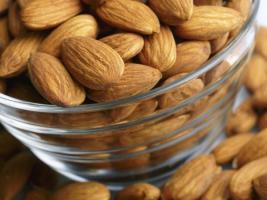Ginger has been consumed since centuries for its taste and medicinal properties. Turmeric, cardamom and galangal also belong to same plant family as ginger. Often used to spice food, especially in sub-continental dishes, ginger also acts as a food preservative. Typically grown in Asia, the rhizome also has several health benefits and is very commonly taken for digestive issues and stomach aches. However, there are many more benefits of inculcating ginger in your daily diet.
Improves blood flow
Ginger has zinc, magnesium and chromium, all of which play a role in improving your blood circulation. Fever and excessive sweating is also prevented by these elements.
Helps deal with motion sickness
Ginger is known to relieve nausea and motion sickness. According to a study, naval cadets using ginger powder were found to be less prone to motion sickness than others.
Prevents cold and flu
Ginger is very effective in relieving the effects of cold and flu. It clears the circulatory channels and improves chest/nose congestion. Ginger has the ability to breakdown and remove mucus, clearing airways and helping with breathing issues.
Acts as an anti-inflammatory agent
Ginger is an excellent anti-inflammatory agent and can act like a natural painkiller. According to the University of Miami, ginger has the potential to replace anti-inflammatory medicines like aspirin and ibuprofen.
Improves your immunity
Ginger inhibits fats from depositing in your arteries and prevents heart related issues like stroke. Moreover, incorporating ginger into your daily diet strengthens your immune system, which protects you against all kinds of diseases.
Fights cancer
According to the University of Michigan, tests show that ginger is as effective as standard chemotherapy drugs at combating cancerous cells. Another study by the University of Minnesota concluded that ginger slowed down cancerous, colorectal cell growth in the body.
Benefits the Liver
The ‘Nutrition and Metabolism’ journal (June 2011 issue) published a study, according to which ginger showed positive results in the treatment of liver fibrosis. It was found that ginger extract lead to increased production of antioxidant enzymes which benefit the liver.
Ways of eating ginger
You can cut ginger and add it to boiling water, along with honey and a little lemon to make ginger tea. This tea is excellent for winter and will help you deal with cold and flu. Fresh grated ginger can also be added to soup in order to enhance its flavor and take advantage of its medicinal properties.





No Comment